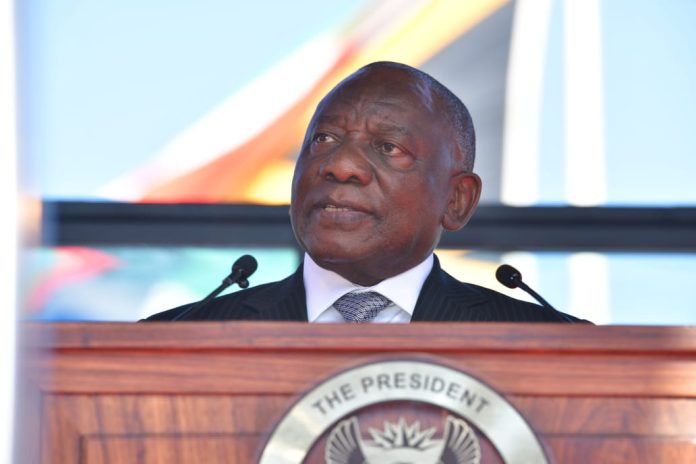President Cyril Ramaphosa has seemingly criticized the scramble for power and positions as government of national unity negotiations enter a third week. In his Monday newsletter, Ramaphosa addressed the matter head on, reiterating that South Africans made clear with their votes that they want their elected representatives to put aside narrow interests and work together to build the country.
Read his full newsletter below:
Dear Fellow South African,
The formation of the second Government of National Unity (GNU) is a momentous development in South Africa’s democracy.
Every effort must be made to ensure that the GNU remains true to its founding spirit of collaboration in good faith to drive a programme that improves the lives of all South Africa’s people.
South Africans made clear with their votes in last month’s elections that they want their elected representatives to put aside narrow interests and work together to build the country. To do so, the GNU cannot be preoccupied with jockeying for positions, tussles over appointments or squabbles within and between parties.
The success of the GNU will be measured by the extent to which we are prepared to focus not on who will govern, but on how we will govern, together.
The first GNU was established in 1994 to promote nation building and inclusivity from a racially divided past during a period of political transition. Among its main tasks was to ensure the passage of a new democratic Constitution.
Giving effect to the principles of that Constitution and the Bill of Right must be the overriding focus of this GNU. This will be done by pursing a common programme to eradicate poverty and build a more equal society, to create jobs, and to make government truly work for the people.
The GNU Statement of Intent provides a solid base for genuine cooperation between parties across the political spectrum who have signed up of their own accord.
The Statement of Intent commits the signatories to a set of foundational principles that include respect for constitutionalism; accountability, transparency and community participation in government; evidence-based policy and decision-making; professionalisation of the public service; integrity and good governance.
The parties to the GNU have agreed on priorities for the incoming administration. At the top of the list of priorities is the achievement of rapid, inclusive and sustainable economic growth to create jobs.
It will be critical that the GNU stays the course on the structural reform that is underway to improve the business operating environment and establish South Africa as an investment destination of choice. These reforms are necessary to resolve longstanding challenges in key industries and create more jobs and opportunities. We will need to build on the progress that has already been made, while accelerating the pace of reform.
The fact that there is broad consensus among the parties on the priorities of the incoming administration gives us encouragement that the GNU will indeed take the country forward. Emanating from the priorities outlined in the Statement of Intent, the parties will further refine the GNU’s programme, including through the proposed National Dialogue process.
We remain committed to consensus-building and to the representation of a broad range of interests and viewpoints within government. At the same time, we are all keenly aware that South Africans expect action, implementation and results.
In a robust defence of the first Government of National Unity in 1994, President Nelson Mandela described it as an enduring national consensus “that is neither an imposition of one party over others, nor a honeymoon premised on the fickle whims of a fleeting romance”. The same is true today.
As parties finalise the modalities of the GNU guided by the Statement of Intent, the days and weeks that lie ahead will be crucial.
The country’s hopes are pinned on the success of the GNU. Our stated commitment to work together constructively and for South Africa’s benefit has generated a great deal of goodwill that we should not squander.
South Africans are watching. We should not waste our energies on those who stand in the way of our country’s progress or lose momentum over differences that can be resolved.
We need to demonstrate in both word and deed that our programme is clear, coherent and sustainable, that our collaboration is genuine, and that the interests of the people will always come first.
With best regards,


